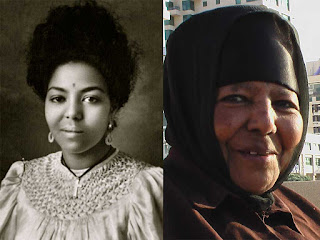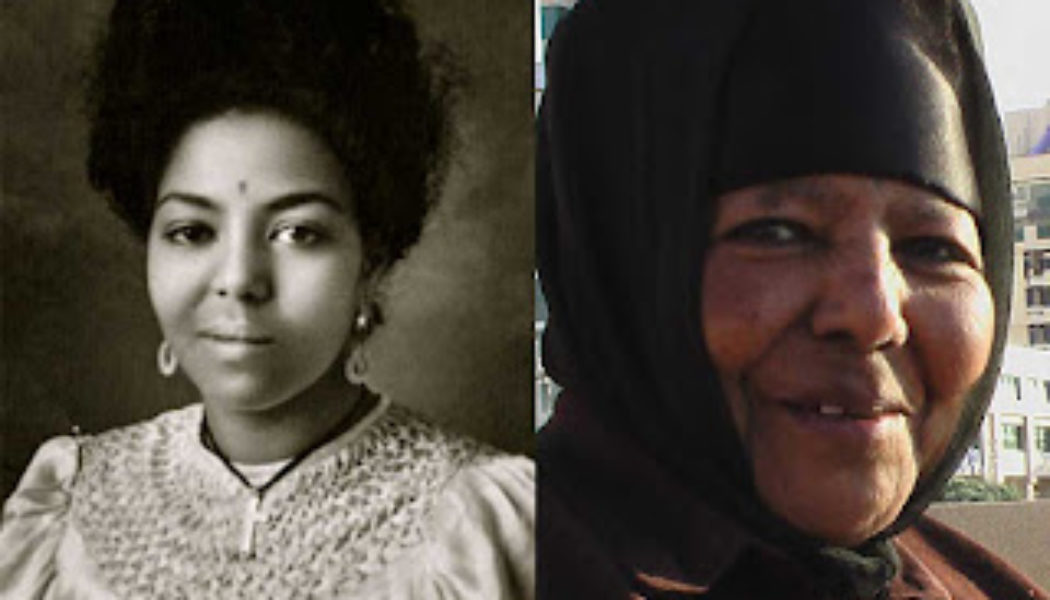
(GIN)––African stars in the pantheon of world music have followers today on almost every continent. We have the albums, the DVDs, videos and tapes of such great singers as Miriam Makeba, Fela Anikulapo Kuti, Youssou N’Dour, and Angelique Kidjo to name just a few.
Less familiar are the classical music composers from Africa and the African diaspora. Yet their works are so numerous that they filled a five volume anthology of sheet music for piano, collected by William Chapman Nyaho, a Ghanaian American of Seattle, Washington, and himself a concert pianist, teacher and scholar.
A recent list of African classical composers put Sister Emahoy Tsegué-Maryam Guèbrou at the top 5 of those named by Kenyan composer and sound artist Nyokabi Kariuki. Guèbrou was described as a gifted composer for the piano, seamlessly mixing forms such as jazz, chamber music and rhythms from her homeland, Ethiopia.
Sister Guèbrou, whose compositions were described as a genre-defying blend of Western and Ethiopian influences, abandoned the secular world in 1984 to live in a single room in the Ethiopian Monastery of Debre Genet, or Sanctuary of Paradise, in Jerusalem. She passed away there on March 26. She was 99.
Her works––four albums and various compilations since the 1960s––were brought to a larger audience in recent years on the soundtrack for the Oscar-nominated documentary “Time” (2020), a film about a New Orleans woman’s fight to get her husband out of prison; and for the Netflix race-and-prejudice drama “Passing” (2021).
Alex Westfall, writing in Pitchfork about that movie and its soundtrack, called the music “the sonic equivalent to infinity—untethered by conventional meter or rhythm, as if Guèbrou’s instrument holds more keys than it should.”
While an admirer of the European classical canon of Frédéric Chopin and Johann Strauss, Guèbrou stayed rooted in the five-note melodic runs common in Ethiopian music.
Offered a scholarship to London’s Royal Academy of Music, Sister Guèbrou found herself blocked for reasons she would not discuss. It was a devastating development for the young artist who refused to eat for two weeks and nearly died.
After that near-death experience that left her weak and ailing, she left music behind, joining at age 19 the Gishen Mariam Monastery in Ethiopia’s northern highlands.
When Italian forces under Benito Mussolini invaded Ethiopia in 1935, Sister Guèbrou and her diplomatic family were placed under house arrest and later sent to POW camps in Italy for two years. She composed the 1963 piece “The Ballad of the Spirit” for three brothers who were killed in the fighting.
Outside of Ethiopia, Haile Selassie enjoyed enormous prestige and respect but human rights under Selassie’s regime were poor. Civil liberties and political rights were low with Freedom House giving Ethiopia a “Not Free” score in the last years of Selassie’s rule.
Emperor Selassie was overthrown in a coup by the Derg, a committee of low-ranking military officers and enlisted men. He was assassinated on Aug. 28, 1975.
By the 1960s, Sister Guèbrou had returned to her family and was recording some of her music. She made several other records over the next 30 years, donating the proceeds to the poor.
In the mid-1980s she left Ethiopia and settled into an Ethiopian Orthodox monastery in Jerusalem, spending the rest of her life there.
She impressed the musician Norah Jones who, after hearing the album “Éthiopiques 21,”––a collection of Sister Guèbrou’s piano solos that was part of a record series spotlighting folkloric and pop music from Ethiopia––called the album “one of the most beautiful things I’ve ever heard: part Duke Ellington, part modal scales, part the blues, part church music,” Jones told The New York Times in 2020.
“Hers were some of the most extraordinary 99 years ever lived on this earth,” Kate Molleson, who wrote about Sister Guèbrou in her book “Sound Within Sound: Radical Composers of the 20th Century” (2022), said on Twitter.
“We can’t always choose what life brings,” Guèbrou told the BBC. “But we can choose how to respond.”









